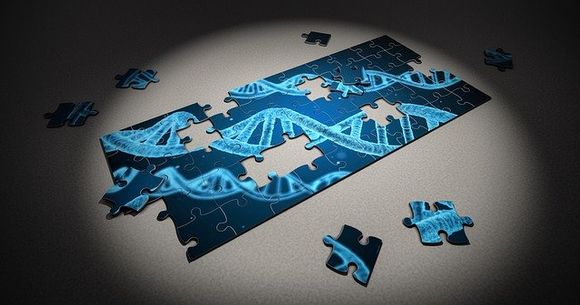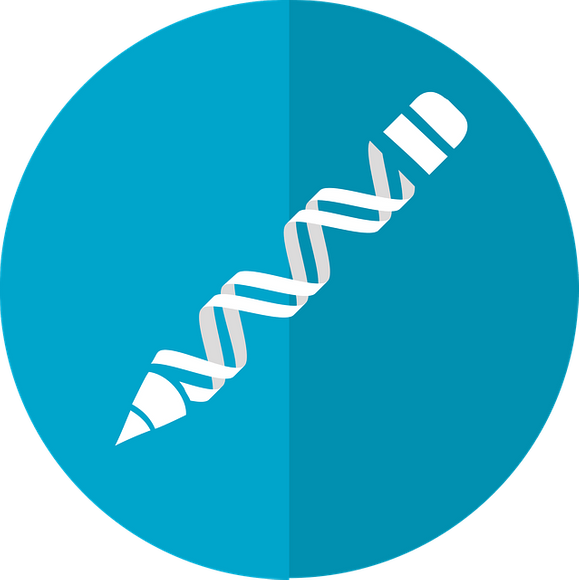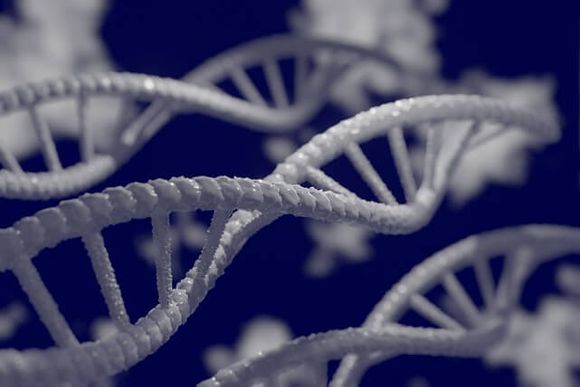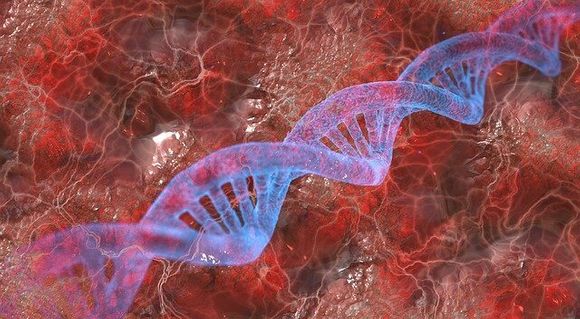Author: Yana Nencheva, Biochemist, PhD candidate in Biophysics
Tradition dictates that, from 1901, the Nobel Prize in Physiology or Medicine be awarded every year. In the not-so-distant 1962, the award went to Crick, Wilkins and Watson, for the revealed structure of nucleic acids (DNA and RNA) and the transmission of genetic information [ref. 1]. Something that even Nobel laureates did not realize were the moral questions of the type - "If my son is going to be gay, will I have an abortion?", to which the discovery later led.
In the early years of the Human Genome Project, Watson was one of the leaders, and it was his name that was associated with the gay gene scandal, in which the media claimed to be calling on mothers in whose embryo the "gay gene" was found to have an abortion.
Watson later sued them for defamation, claiming they were words taken out of context, and explained in other media that the mother had the RIGHT to have an abortion for any reason - developmental delay, dyslexia, or even a lack of musical ability.
The Human Genome Project

The Human Genome Project (HGP) is the international research program, with activities from 1988 to 2003, aimedat fully mapping all human genes ( all genes =genome).
The researchers deciphered the human genome in three steps:
- Determination of the sequence of all bases in DNA [ref. 2];
- "Drawing" the maps that show the location of genes for the main sections of all chromosomes;
- Create so-tying maps where hereditary traits (e.g. genetic diseases) can be traced through generations.
The first results (at 90%) on sequencing of the human genome were published in the journal Nature in February 2001. Two years after that, the full sequence [ref. 3] was completed and the full sequence [ref. 3]. According to some, the project will be completely completed when every single person on planet Earth doesa complete sequencing of their own genome.
The thought of knowing what genetic information you carry, knowing your weaknesses, protecting yourself from harmful habits and living healthier (and longer) is extremely tempting:
- You'il know what diseases you're prone to,
- You'il be able to calculate with your partner what your children are likely to get sick of,
- You'il find out who your real kinship is.
However, this on the one hand is still expensive and on the other hand it asks some important questions:
- If the bank knows there's a 70% chance you'il get cancer in the next 10 years, would you lend you an apartment?
- Would you risk having children if they were 50% likely to suffer from schizophrenia like your father?
- You think you're going to reveal a family secret?
These questions are mildly "delicate", which is why every genetic laboratory must have a document to ensure the confidentiality of the results.
Genetic discrimination

Along with the problems that arise with the Human Genome Project, the term "genetic discrimination"is born. When they know that you have a genetic mutation that increases the risk of disease, a federalGenetic Information Nondiscrimination Act (GINA) comes out in the United States to protect an individual's personal choice to take such a test. It prohibits employers from taking into account a person's genetic information when deciding on hiring, firing or promotion [ref. 4].
If you decide to take a genetic test, in 2013 in Bulgaria the book "Genetic Discrimination" was publishedin Bulgaria, where the Doctor of International Law and International Relations Mariella Deiverska analyzed basic regulations related to medical and geneticcounseling.
The book also discusses the difficultiesthat can be encountered in proving this type of discrimination. The ways of preventing genetic discrimination on the territory of the Republic of Bulgaria are considered - how to proceed and to whom to turn if necessary.
The author works as an expert in the Commission for Protection against Discrimination and at the Ministry of Justice, a specialist in the field of medical law and a lecturer in social and health legislation.
How to live longer despite your genes

There are two types of genetic tests that have been quite modern in recent years:
- Genetic test to prove lineage, in which against a swab a sampleof secretion taken from the inside of the cheek, you can find out how much African, Irish, Jew, etc. you are, which is extremely curious;
- A full genetic test - which will give you information about all the genes you carry, accompanied by the likelihood of unlocking various deadly diseases. These are much more expensive, but are already available in promotional packages - with and without payout for one, for two, married with a discount, etc.
Unlike the proof of lineage test, which is only curious, the full genetic test may prove fateful because it can cause us to radically change our way of life.
Here comes epigenetics, which is a set of factors (environment, lifestyle,stress) that determinewhether a gene (disease) will be unlocked ornot.
Types of diagnostic genetic tests

Often, the reasons for launching a genetic test are not related to curiosity or determination to change our lives. In general, the prosaic health need for some kind of diagnostic genetic test is on the face:
- Screening of a newborn - it is carried out immediately after birth to identify genetic disorders that can be treated early in life. In Bulgaria babies can be tested for congenital hypothyroidism (thyroid disorder) and the condition can be cured before any developmental disorders have taken place.
- Diagnostic examination - used to identify or exclude a specific genetic or chromosomal condition. In many cases, it is to confirm a diagnosis when a certain condition is suspected, based on physical signs and symptoms. Diagnostic examination can be performed before birth or at any time in a person's life, but is not available for all genes or all genetic conditions.
- Testing for a carrier - it is for people who carry a single copy of a gene mutation that, when present in two copies, causes a genetic disorder. This type of test is offered to individuals who have a family history of genetic disorder, as well as to people from certain ethnic groups with an increased risk of specific genetic conditions. If both parents are tested, the test may provide information about the couple's risk of having a child with a genetic condition.
- Prenatal testing - it is for detecting changes in the genes or chromosomes of the fetus before birth. This type of test is offered during pregnancy if there is an increased risk that the baby will have a genetic or chromosomal disorder. Such are, for example, tests for Down syndrome.
- Pre-implantation testing, also called preimplantation genetic diagnosis, PGD, is a specialized technique that can reduce the risk of having a child with a certain genetic or chromosomal disorder.
- Predictive and presamptomatic examination - used to detect gene mutations associated with disorders that occur after birth, and often later in life. These tests can be useful for people who have a family member with a genetic disorder but who themselves have no specificities of the disorder at the time of testing. It identifies mutations that increase a person's risk of developing genetic-based disorders, such as certain cancers .
- Forensic tests - they use DNA sequences to identify a natural person for legal purposes.
How to take a sample for a genetic test

Before genetic testing is done, it is important to discuss the procedure, benefits, limitations and possible effects of the test results. A document of informed consent is signed. The genetic test may bedone with a sample of:
- Blood
- Hair
- Skin
- cells on the inner surface of the cheek with a cotton swab to collect a sample,
- in screening tests for newborns, a small blood sample is taken by pricking the baby's heel,
- amniotic fluid or other tissue.
The sample is sent to a laboratory where specific changes in chromosomes, DNA or proteins are examined, depending on the suspecteddisorder. The laboratory describes the test results in writing and gives them to a doctor or geneticist to discuss them with the patient and explain to him what it is about. The results can also be sent directly to the patient if the reason for the test is not a disease but a curiosity [ref. 7].
Mandatory before the genetic test

If you have decided to test yourself genetically, you should do the following:
- Research of the company you have chosen;
- Whether the data will be used by research organizations or other companies;
- When reading the results, let a doctor be presentto introduce clarity;
We are in the 21st century. However, they may make you change your life to less stress, move to a village where the air is clean, play sports more, grow healthy food, just not get cancer and live longer, and end up getting hit by a cart. So remember- full genetic tests mostly calculate probabilities.
Read more:
Epigenetics or how lifestyle governs our genes
How nucleic acids DNA and RNA orchestrate life
How genes determine resemblance to our parents
Mutations vs. Natural Selection









